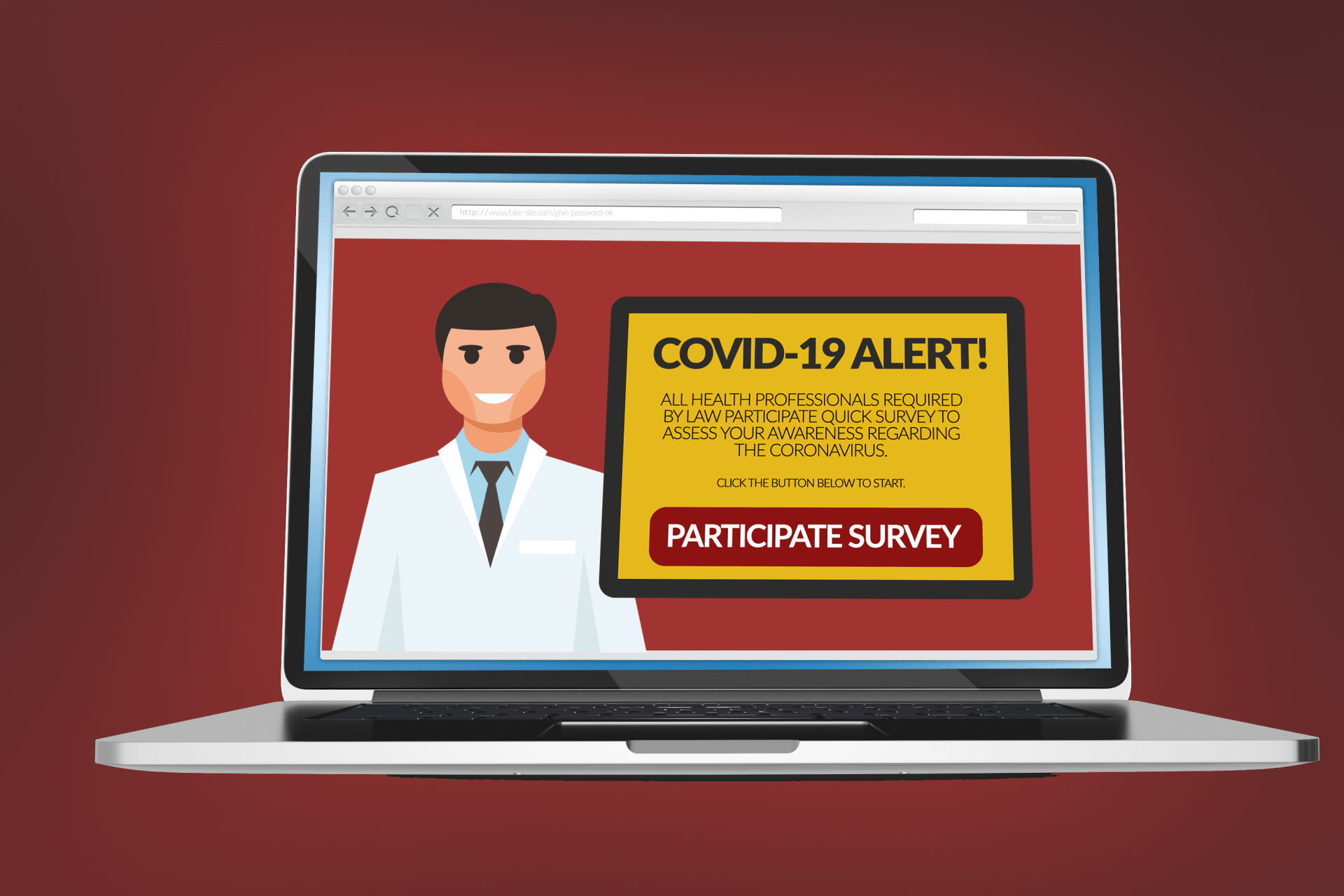Blog
Expert tips
News, Tips, and More

By Jesus Anaya
•
15 Oct, 2020
Hackers have become very creative in the last few weeks, leveraging the Coronavirus to target people. We have seen a massive surge in attacks and scams, so we have put together this advisory, to help folks in Amarillo stay safe! Remember, if you're unsure if something is to be trusted or not, or need any other help with your technology or data security, contact us. Click to download the advisory below.

By Jesus Anaya
•
15 Oct, 2020
It was a mad rush getting set up for home working a few weeks ago, wasn’t it? And if you’re like most people I’ve spoken to, now that the dust has settled and it’s quickly become the new “normal”, some things are starting to frustrate you. There’s not much we can do about distractions or cats on your keyboard, but we can help with tech issues such as: - Having to work in weird ways, because of the way your business’s technology is set up - Annoyances while sharing business data among your staff and colleagues. - Communicating and collaborating efficiently with your team throughout the day - Old slow devices. Even though new laptops are in short supply, there are often things that can be done to speed older devices up Send us a message below or give us a call today at 806-316-5711 to find out how we can help!

By Jesus Anaya
•
25 Jun, 2020
How To Keep Your Tech Squeaky Clean Our tech is something we use every day, but did you know it’s also the most disgusting? Your screen may look clean, but some studies show that a mobile phone may be up to 18x dirtier than a public restroom! It gets worse. You know that keyboard you tap at while eating your morning toast? It’s probably the biggest bacterial threat in your house, with up to 20,000 times more germs than a toilet seat, or more if you have kids! It’s not just for our own protection, but because as dust builds up inside gadgets, they also slow down, malfunction, or overheat. Your device essentially chokes, as vents and filters are clogged by sucking in pet hair and floating debris. Fortunately, there is something you can do! Here’s how to clean your essential tech items without damaging them: 1. Skip the household cleaners: Most cleaning products are too harsh for use on tech and can end up causing permanent damage. The goal is kill germs and remove everyday grime, without scratching or leaving behind residue. Your best bet is to simply use isopropyl alcohol! 2. Power down completely: Turn your tech off all the way, not just sleeping, and unplug from any power sources. Switch wireless keyboards, mice, etc off or remove the batteries. 3. Remove any cases or covers: Undress your device as much as you can, but leave screen protectors on (unless there’s grime underneath). If your screen protector needs replacing, have a new one ready to apply. 4. Grab a microfiber cloth: Dampen the cloth with Alcohol and wipe down your screens and external surfaces gently. Severe build-up may require extra effort. 5. Go deep: Use a toothbrush or a Q-tip to clean hard to reach places. Some areas will need more effort than others. We don't advise using a vacuum, as some are too powerful and they end up sucking keyboard keys loose, or damaging loose internal components! Expert tip: Use a can of compressed air to blow the dust out. You can get these from many stores and they come with a long nozzle so you can really get in and direct the pressure. You’ll be surprised what flies out, so it’s best to do this outside! We don’t recommend using compressed air on your computer’s internal fans though, as this can make them spin too fast and damage them. How often you clean your tech is up to you. Remember, it’s a good idea to blow out computer dust every few months and wiping your tech down once or twice per week. It's an easy way minimize germs and grime!

By Jesus Anaya
•
20 Jun, 2020
With the world grappling with a health pandemic, scams are shocking. Regrettably, bad actors are everywhere, always looking for opportunities, and they’re seeing one in the coronavirus. This article outlines what you need to watch out for and how to stay cyber safe. The last thing you want to read right now is that there’s another threat out there – sorry, but it’s true. Cybercriminals take advantage of fear. They take timely concerns and use them to target victims. Using the anxiety and upheaval around coronavirus is their mission. So far, several coronavirus-related attempts to cyberscam people have been reported. There are examples of: emails that appear to come from government health departments; offering a tax refund to get people to click on malicious links; memos to staff that appear to come from large employers; COVID-19 test offerings from private companies; fake websites promising to sell face masks or hand sanitizer; soliciting donations to help fund a vaccine. What to Watch Out For Another concern is the number of bogus websites registered with names relating to COVID-19. The site can look legit but is set up to steal information or infect the victim’s computer with malware. You may get an email promising the attached information offers coronavirus safety measures, or information shared by the World Health Organization (WHO) if you click on the link, or a similar email pretending to be from a reputable news source, such as the Wall Street Journal (WSJ). In another example, an email impersonating a healthcare company’s IT team asked people to register for a seminar "about this deadly virus.” Anyone who didn’t question why IT was organizing the meeting clicked to register. By filling out the form, they gave their details to hackers. What to Do Be cautious. It’s understandable that you’re anxious, but don’t let that stop you from taking cyber precautions. You should still: be wary of anything that tries to play on your emotions and urges immediate action; question where emails are coming from – remain vigilant even if the communication appears to come from a reliable source; hover over links before clicking them to see where they will take you – for example, in the WSJ example, the Web address was for the “worldstreetjournal”; avoid downloading anything you didn’t ask for; doubt any deals that sound too good to be true (“a mask that stops the virus 99.7% of the time!”); ignore any communications requesting your personal information; don’t be suckered by fraudulent pleas for charity. Global health organizations generally do not send out emails with advice. Instead, navigate directly to that reputable health institution for real news. If you’re still not sure about the validity of the communication, check it out. Do so by calling or using another medium to get in touch with the “source” of the received message. While there is not yet a vaccine for COVID-19, you can put anti-virus protection on your computer. Also, make sure that you’ve applied all available security updates to keep your software safe. We hope you’ll take care and stay healthy both physically and online in these tough times. Need help installing security software and keeping your technology safe? Our cybersecurity experts can give your business a tech immunization. Contact us today at 806-316-5711!

By Ashley Terry
•
06 Feb, 2020
The term 'MSP' stands for 'Managed Services Provider'. Not that long ago, there was a time before handheld phones and the mysterious 'Cloud'. With the advent of the Computer Age and the subsequent 'Cloud Computing Age', computers and computer systems were difficult for some to operate. They were slow and they did pretty basic functions. Over time, the internet got faster, computers did more things and before you know it everything is interconnected and running at 1Gbps. The problem with moving from dial-up to smartphones is complication. Suddenly your business has to have 10 different software programs, not because the original one didn't advance, but because you want productivity to be high, you want your computers running as fast as possible. That along with security holes and hackers always on the prowl is why you now need 10 different applications. What do you do if one of them breaks? Well, you call the vendor and ask them to fix it. Now 4 hours later the vendor says that they need access to something and the way they explain it doesn't make sense. They say, "We need to RDP into your Primary Active Domain controller so that we can reconfigure the Service Account for your Quickbooks Server." You say, "Excuse me! Don't you cuss at me now, just get it fixed!" Another 2 hours later and now they've either fixed the problem or they have to look elsewhere. This is where the MSP shows it's real value. Imagine a company, that documents all your computers, what they do, where they are and the software companies you use. That is just part of the MSP service. Now the scenario above can play out like this with an MSP. You: "We are having an issue with Quickbooks, it's just not opening keeps giving an error and kicking me out." MSP:"Alright, let me take a look." Since the MSP almost always doubles as certified IT Experts (Yellow City IT...) they can generally solve level 1 issues such as the service account not working or the Quickbooks server service not running. In this scenario, the MSP has saved the client over 5 hours of time, and confusion with all of their 'IT Terminology'. If the MSP actually has to reach out to the software vendor, they already have access, know what to do and can keep it all secure and document any changes at the same time. A lot of places have an 'IT Guy', but having an MSP is much different. An MSP is like having a full on IT Department for you 5 employees, effectively giving you access to a premier, qualified, experienced and knowledgeable 'Chief Technology Officer' as it were.
© 2024
Yellow City IT | All Rights Reserved | Privacy





